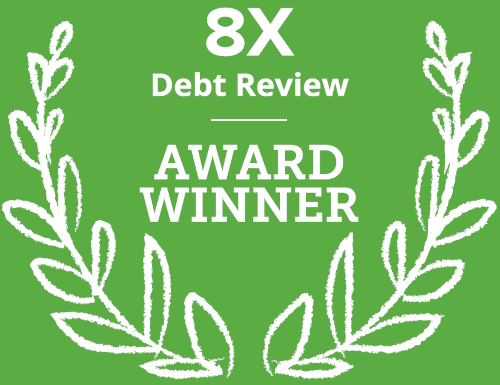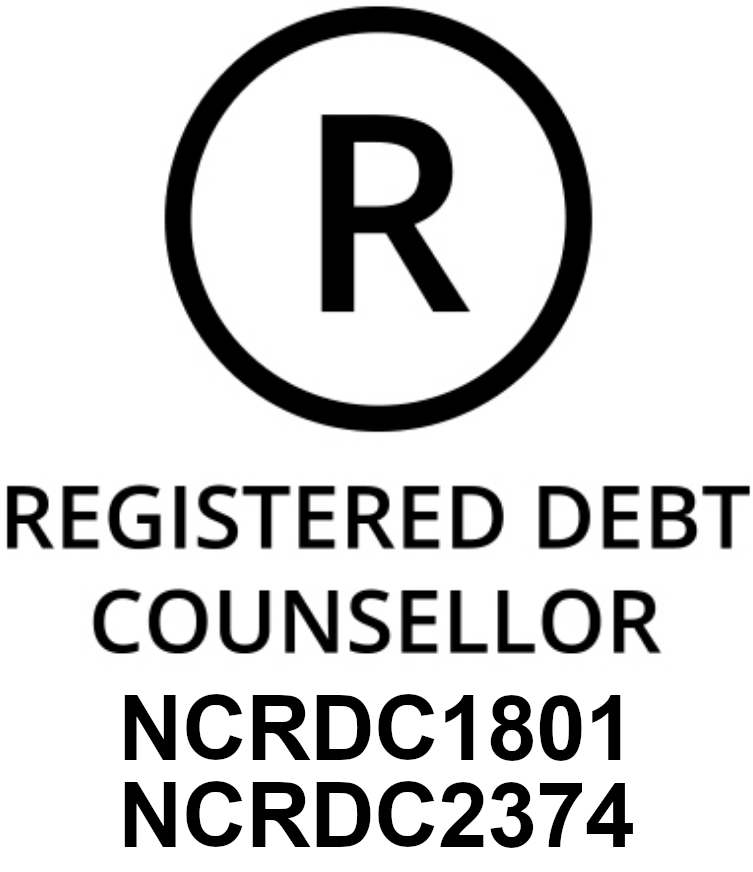The credit crisis in South Africa persists as the Consumer Credit Market Report (CCMR) and the Credit Bureau Monitor (CBM) released by the National Credit Regulator for the 4th quarter of 2013 provides several shocking trends. The CEO of DebtBusters, South Africa’s largest debt counsellor, makes the following comments.
The bad news:
- Explosion of unsecured credit has increased from R54 billion in 2009 R170 billion in 2013. - Of the 20.64 million credit active consumers, 9.93 million have impaired credit records. - There has been a 25.65% year on year decrease in the amount unsecured credit granted, indicating that the growth of unsecured credit has slowed down, although an average amount of R21 million in unsecured credit is still granted on a quarterly basis. - 29.92% of the total amount of unsecured credit agreements granted were for personal loans less than or equal to R3,000. Unsecured Loans of this size have seen a year on year increase of 32.06%, with the majority of these having payment terms of under 6 months. - 36.91% of unsecured loan accounts are in arrears. - Credit facilities which consist primarily of credit cards, store cards and bank overdrafts increased by 5.52% quarter-on-quarter from R17.72 billion to R18.70 billion.
The good news:
- The value of mortgages granted increased by 0.57% quarter-on-quarter from R 34.52 billion to R34.72 billion. The number of mortgage accounts up to date increased marginally from 91.26% to 91.39% quarter-on-quarter.
1. Nearly one in every two credit active consumers have impaired credit records
The report noted the number of South African consumers with impaired credit records continues to rise and increased from 9.76 million to 9.93 million quarter-on-quarter (Q3 ending September 2013 to Q4 ending December 2013). Despite the increase in the number of impaired records, the percentage of credit active consumers with impaired records remained stable at 48.1% quarter-on-quarter.
The fact that this is still the highest percentage recorded indicates that consumer credit health remains an issue in South Africa and more consumers are struggling to repay their debts. Worrying statistics released by the report also show that the credit performance of South African consumer accounts has deteriorated due a quarter-on-quarter increase from 19.25 million to 19.74 million.
Evidence of consumers in financial distress and searching for credit continues, as the report also shows that credit providers experienced an increase in the number of applications for credit, amounting to 10.75 million in Q4 ending December 2013, in comparison to 10.22 million applications in Q3 ending September 2013.
The combination of consumers reaching the end of their credit line and no longer qualifying for credit, with the recent implementation of stricter credit affordability assessments, the credit application rejection rate by credit providers has increased to 57.37% from 57.23% in the previous quarter.
2. Distressed borrowing of unsecured credit is still on the rise!
Unsecured credit transactions comprise all transactions or credit agreements whereby the debtor does not have any security or assets other than credit facilities or short-term credit. The rand value of unsecured credit granted increased to R21.61 billion in December 2013, a quarter-on quarter increase of 3.43%.
Although there has been a 25.65% year-on-year decrease in the amount unsecured credit granted, indicating that the growth of unsecured credit has slowed down, the average amount of R21 billion of unsecured credit is still granted on a quarterly basis. In South Africa, 18.22% of the total credit granted in the quarter ending December 2013, was made up of unsecured credit.
This is supported by the 5.52% quarter-on-quarter increase in credit facilities granted, which comprise the use of credit and/or garage cards, bank overdrafts, store cards, services and other facilities. Unsecured loans and credit facilities are still being used by South African consumers in order to meet their consumption needs, as well as to pay off existing debt that has become increasingly difficult to pay off due external macro-economic factors.
Need debt counselling or consolidation?
Explore DebtBusters' solutions for reducing your interest rates and unlocking cash.
Find out moreLow growth prospects, high unemployment rates combined with hiked interested rates and the increased cost of living, are forcing consumers to turn to unsecured credit when financially distressed. The report outlines another significant trend. 29.92% of the total amount of unsecured credit agreements granted were for personal loans less than or equal to R3,000.
Unsecured Loans of this size have seen a year-on-year increase of 32.06%. Adversely, the amount of all unsecured credit agreements ranging in size from R3,100 up to R15,100 have seen a year-on-year decrease. Unsecured credit agreements for loans less than R15,100 in particular, amounted to 31.64% of the total agreements.
It is once again evident that individuals are reaching the end of their credit line and no longer qualify for larger loans due to lack of affordability. As a result, desperate times have led them to resort to taking out smaller loans of R3,000 and less, which are generally over a short time period like ‘pay day’ loans, and are charged at 60% interest.
3. Explosion in unsecured credit in the last 4 years
The unsecured credit gross debtors book increased by R3.34 billion, a quarter-on-quarter increase of 2%, a year-on-year increase of 7.22% amounting to a total of R170.75 billion. Unsecured credit outstanding amounted to a shocking R170 billion, which accounted for 11.23% of the total gross debtors book.
Looking back on the quarter ending December 2009, unsecured credit amounted to 5.28% of the gross debtor’s book, at a rand value of R54.6 billion. The quarter ending December 2011, unsecured credit jumped to 8.72% of the total gross debtors book, at a rand value of R113 billion.
At this point in time, the National Treasury did not see the rising unsecured credit gross debtors book as a concern for systemic risk. The unsecured credit gross debtors book has continued to grow on a yearly basis and has a seen a drastic jump in rand value, from the quarter ending December 2009 to the quarter ending December 2013.
At what point will the National Treasury going to step in and declare this to be a systemic risk? In addition, a small total of 63.09% of unsecured credit accounts are up to date. This amount has decreased by 2.79% year-on-year. This means that a total 36.91% of unsecured credit accounts are in arrears and not up to date with payment.
4. Worrying increase in the amount of credit lent by retailers
Banks still accounted for 81.02% of the total value of credit granted and retailers only accounted for 4.69%. However, retailers have seen a drastic quarter-on-quarter 39.40% increase in the total amount of credit granted! This may be in response to lagging retail sales, forcing retailers to expand their own credit to consumers to boost sales.
5. Credit facilities gross debtors book is rapidly expanding
Credit facilities gross debtors book had a quarter-on-quarter increase of R5.46 million of 3.04% from R179.9 billion to R185.37 billion.
6. Up to date mortgage accounts continue to increase
The number of mortgage accounts up to date increased marginally from 91.26% to 91.39% quarter-on-quarter. The value of mortgages granted increased by 0.57% quarter-on-quarter from R 34.52 billion to R34.72 billion.
Likewise, year-on-year mortgage agreements increased by 21.37%. As this data is from the quarter prior to the Reserve Banks interest rate hike, it is likely that the mortgage holders up to date, will start to fall.





